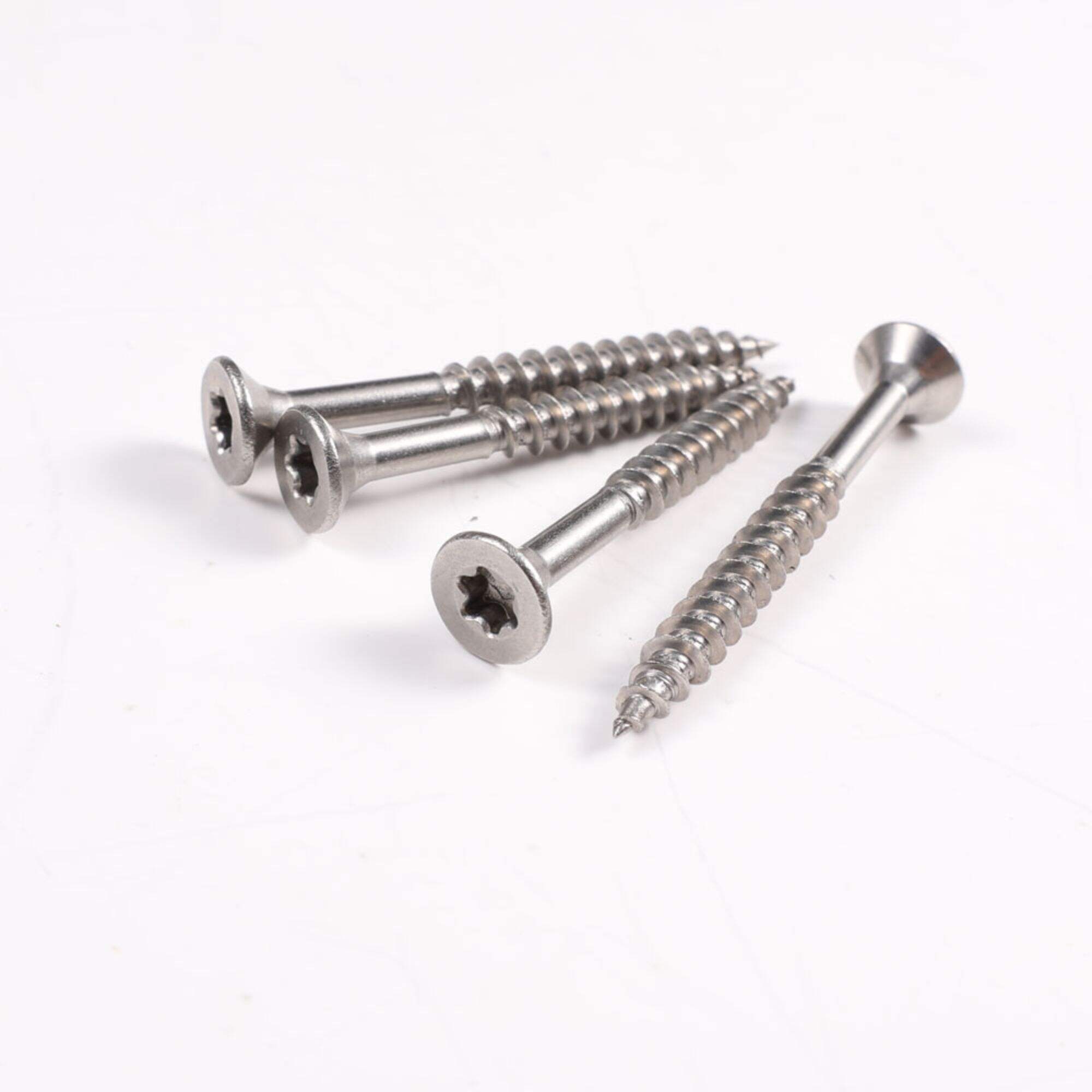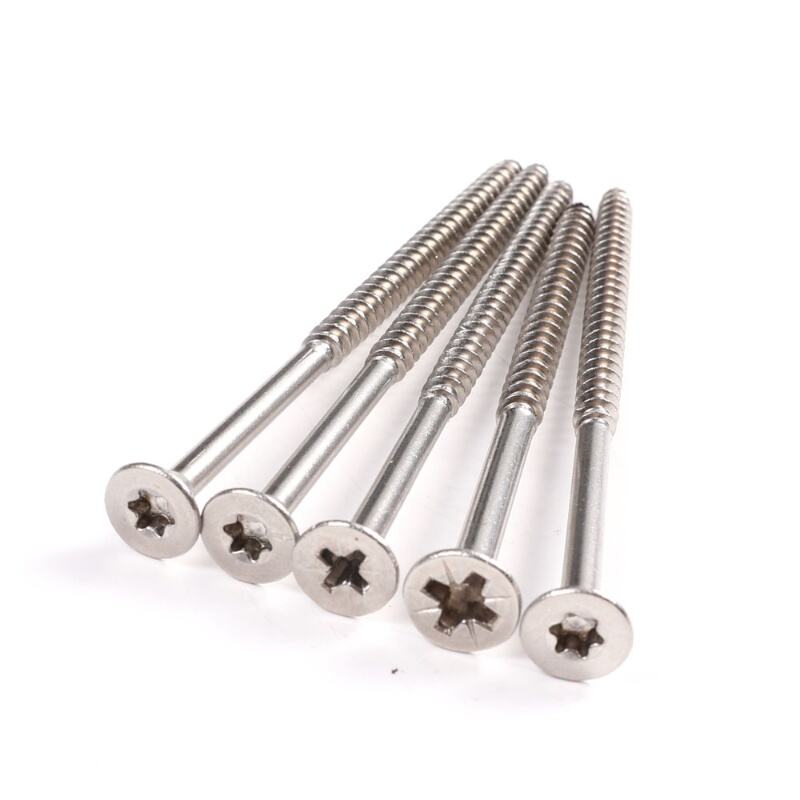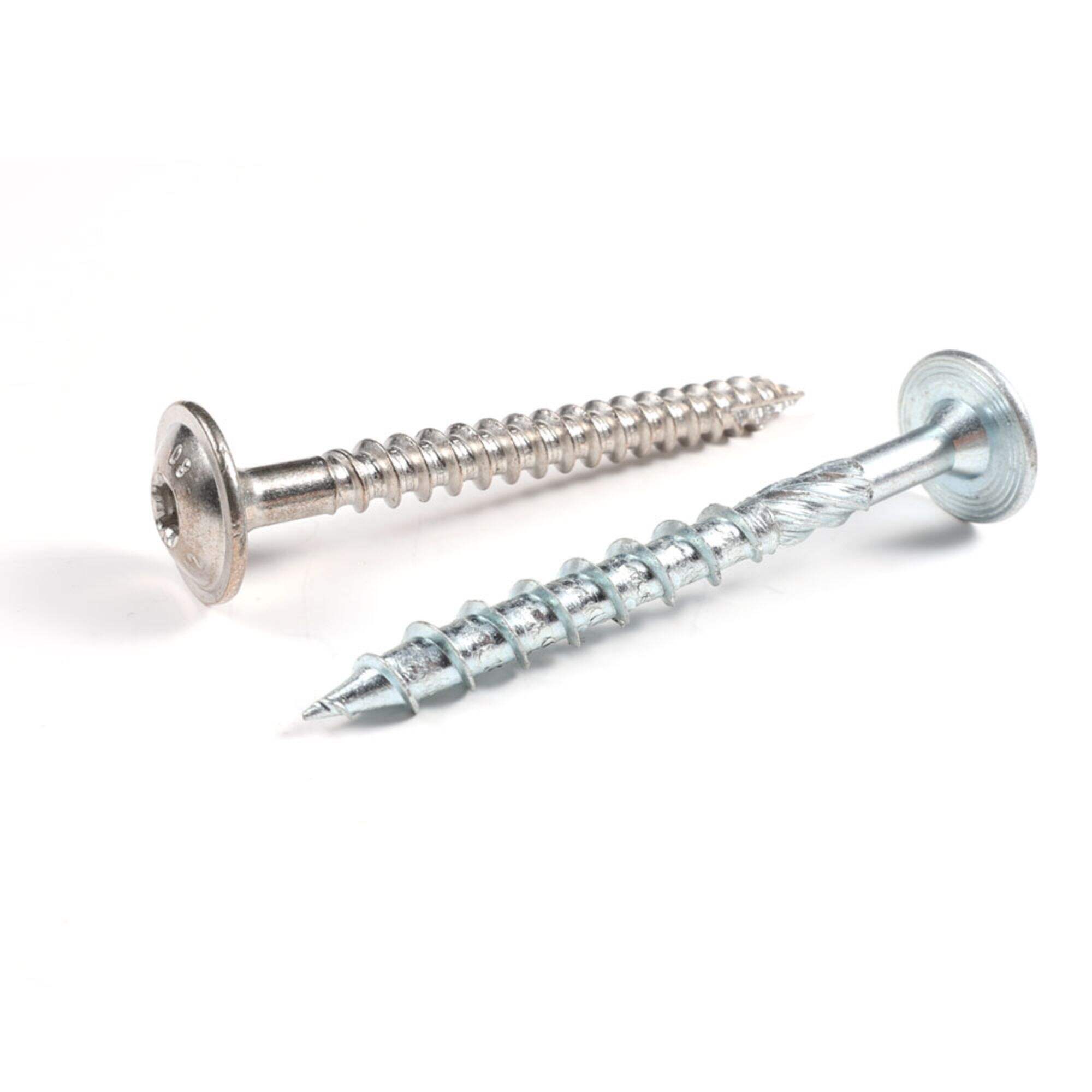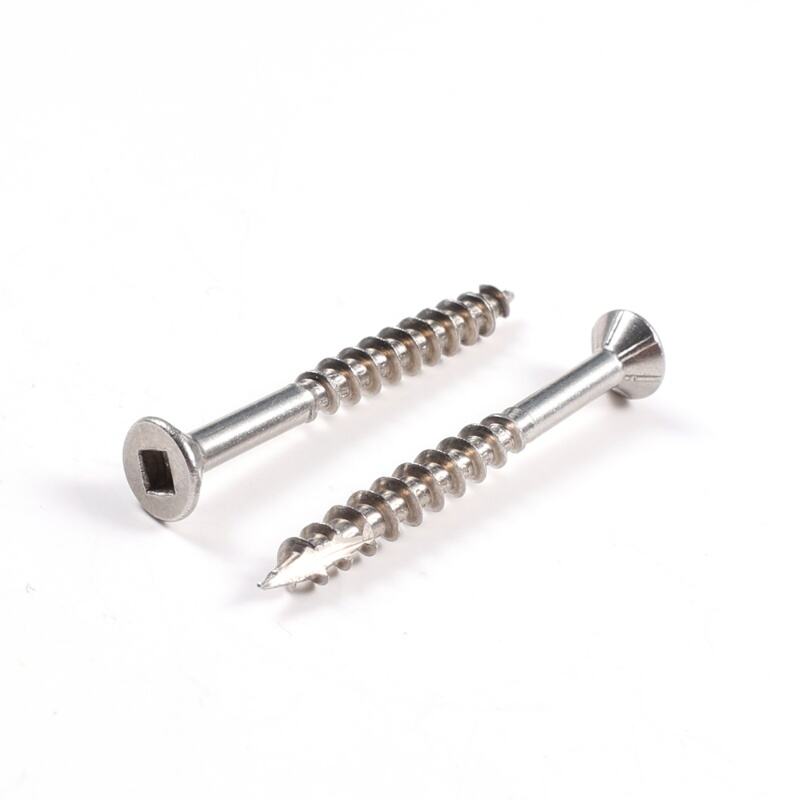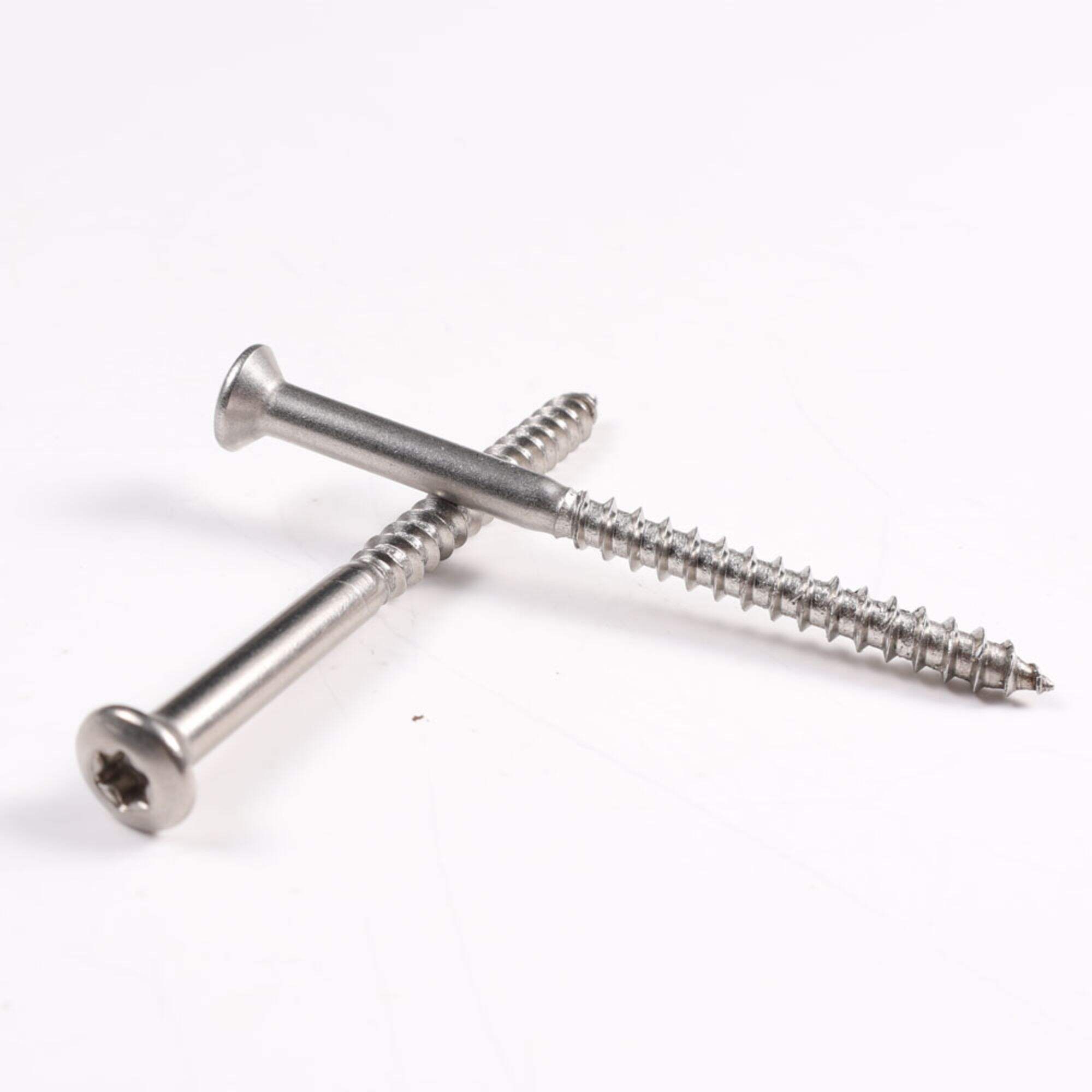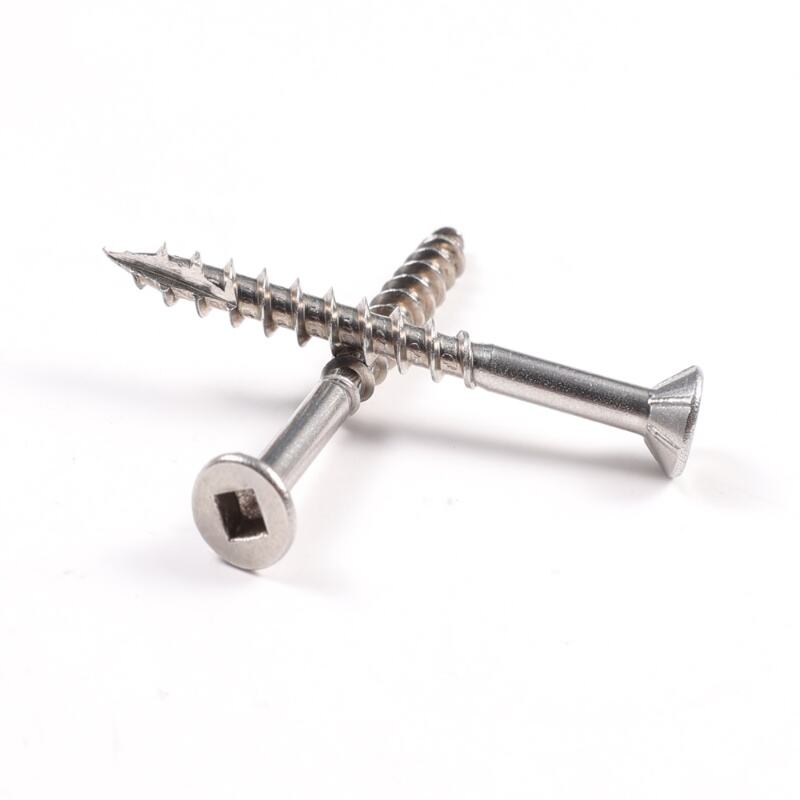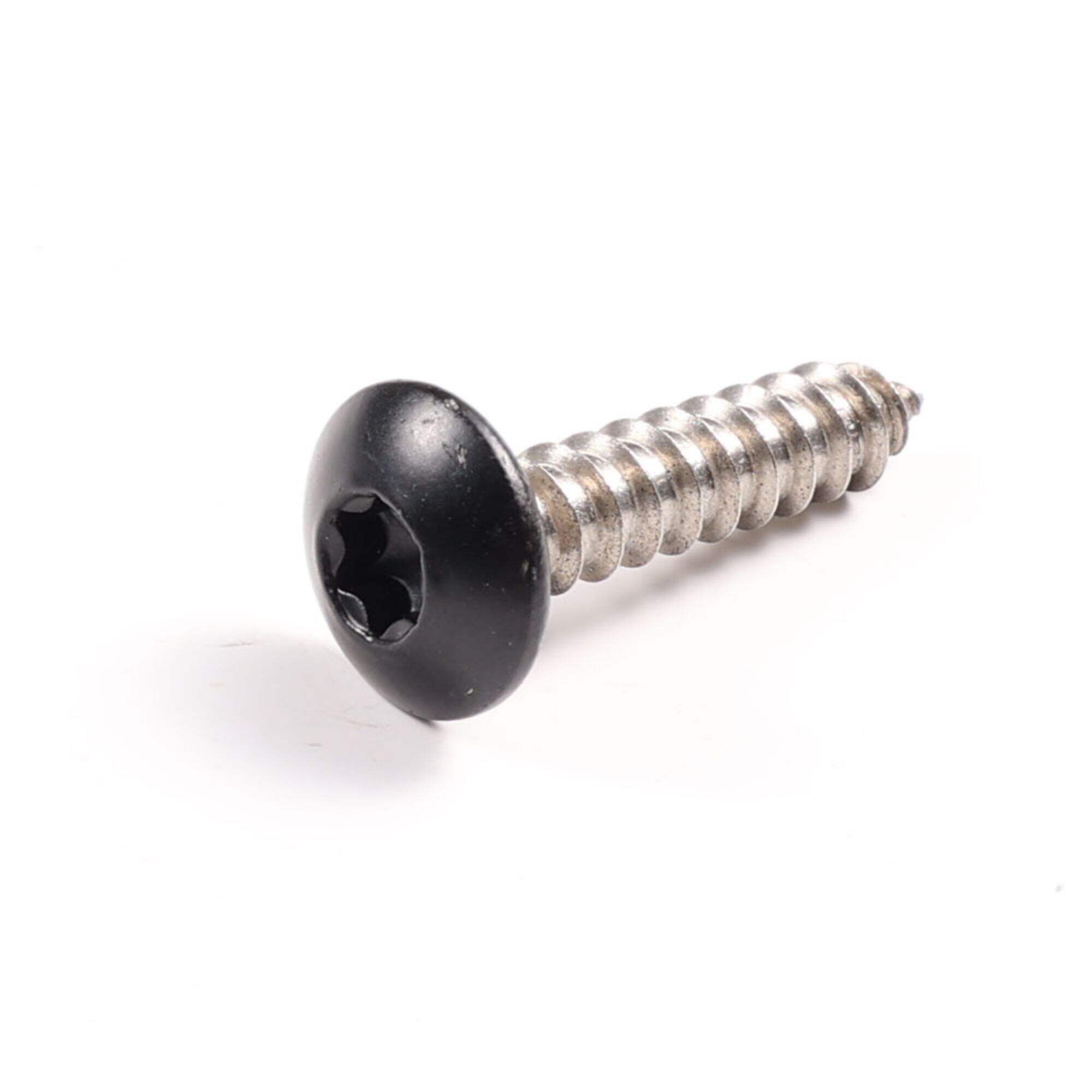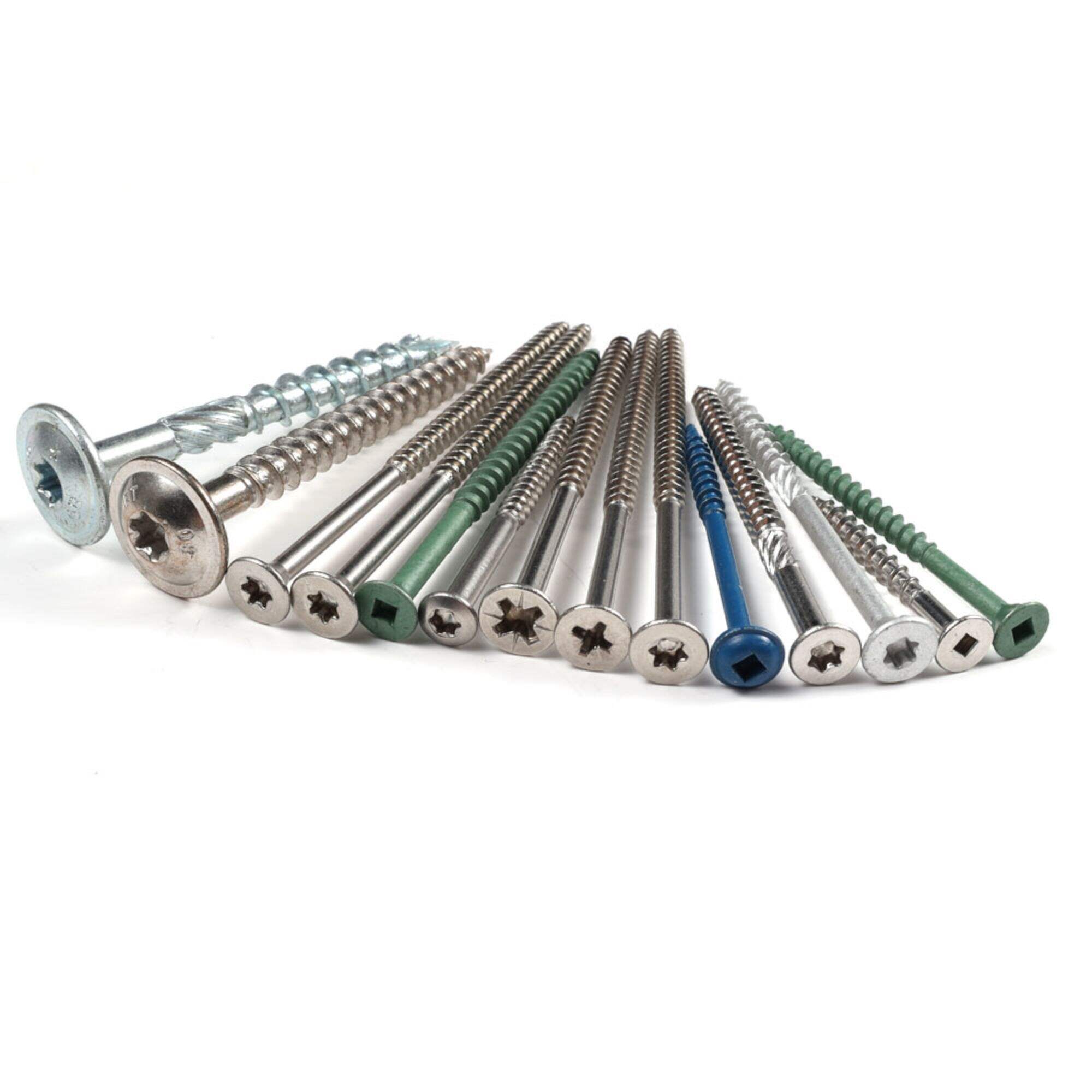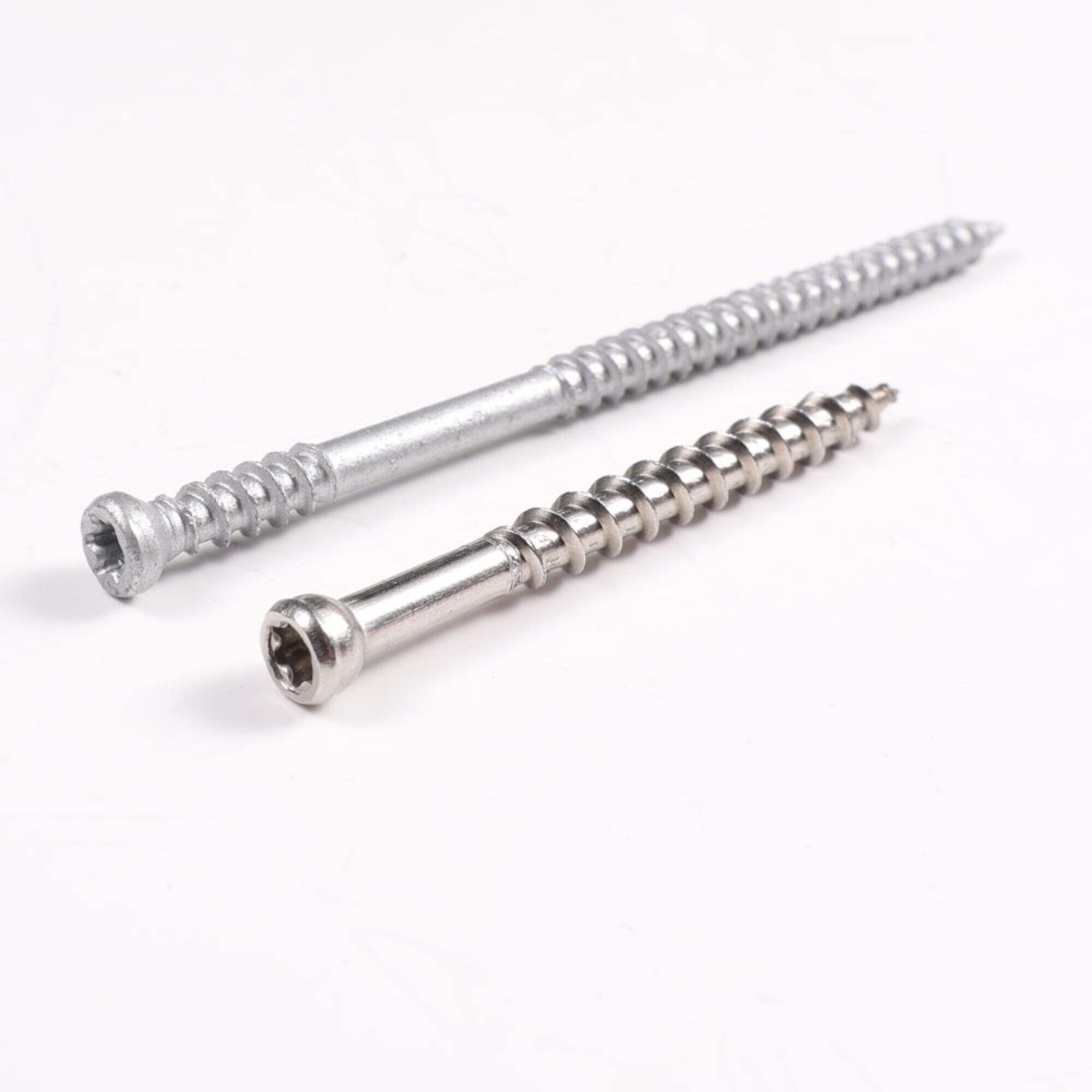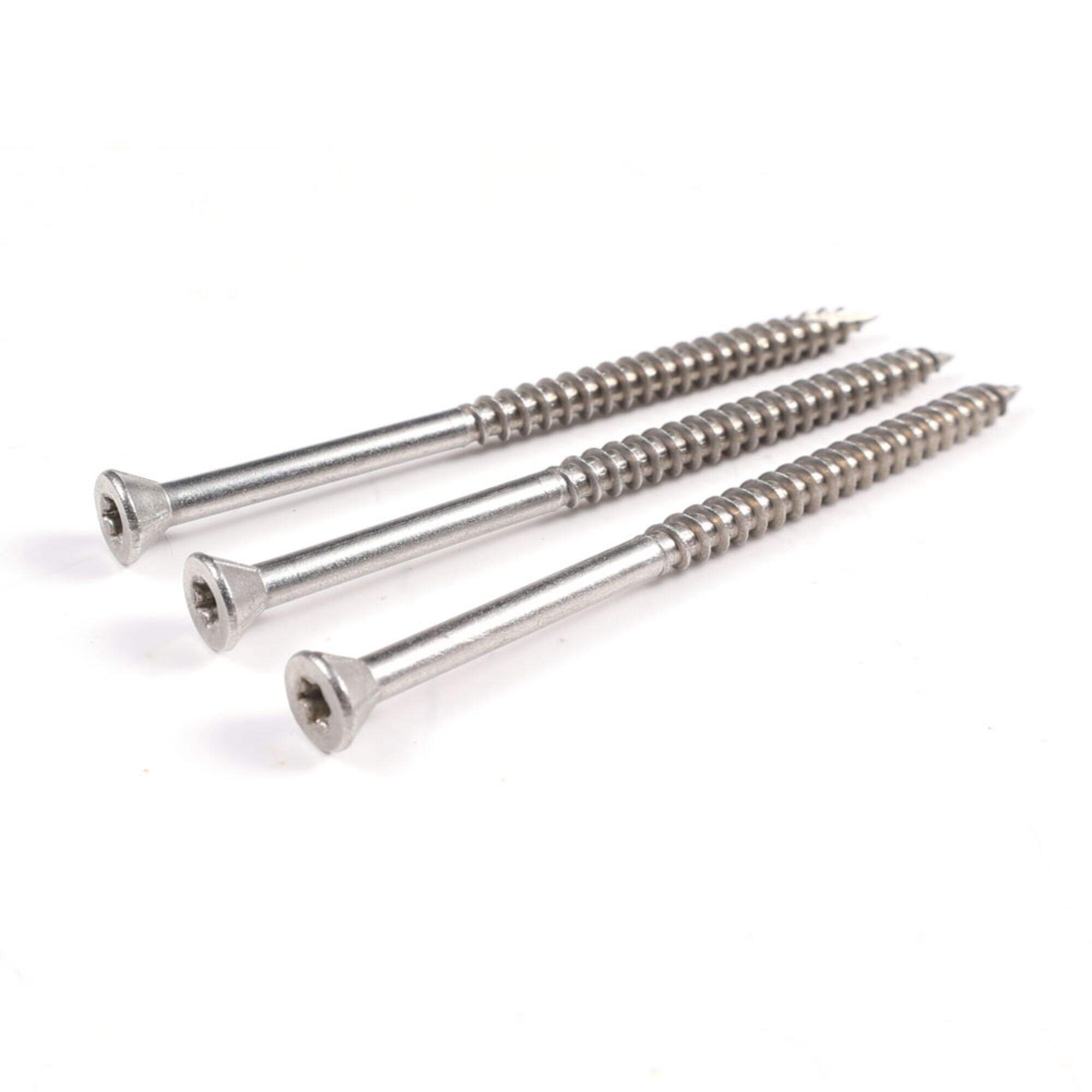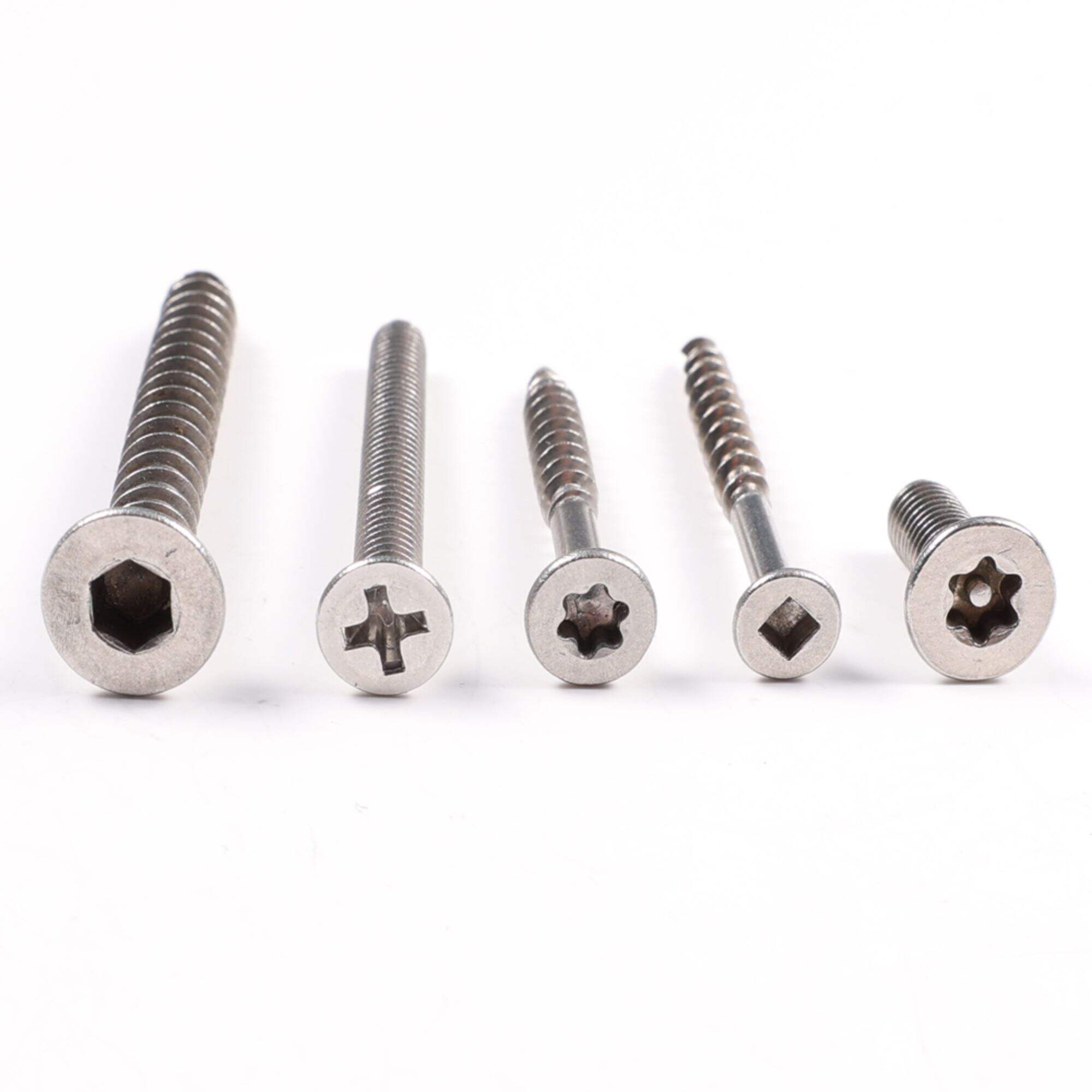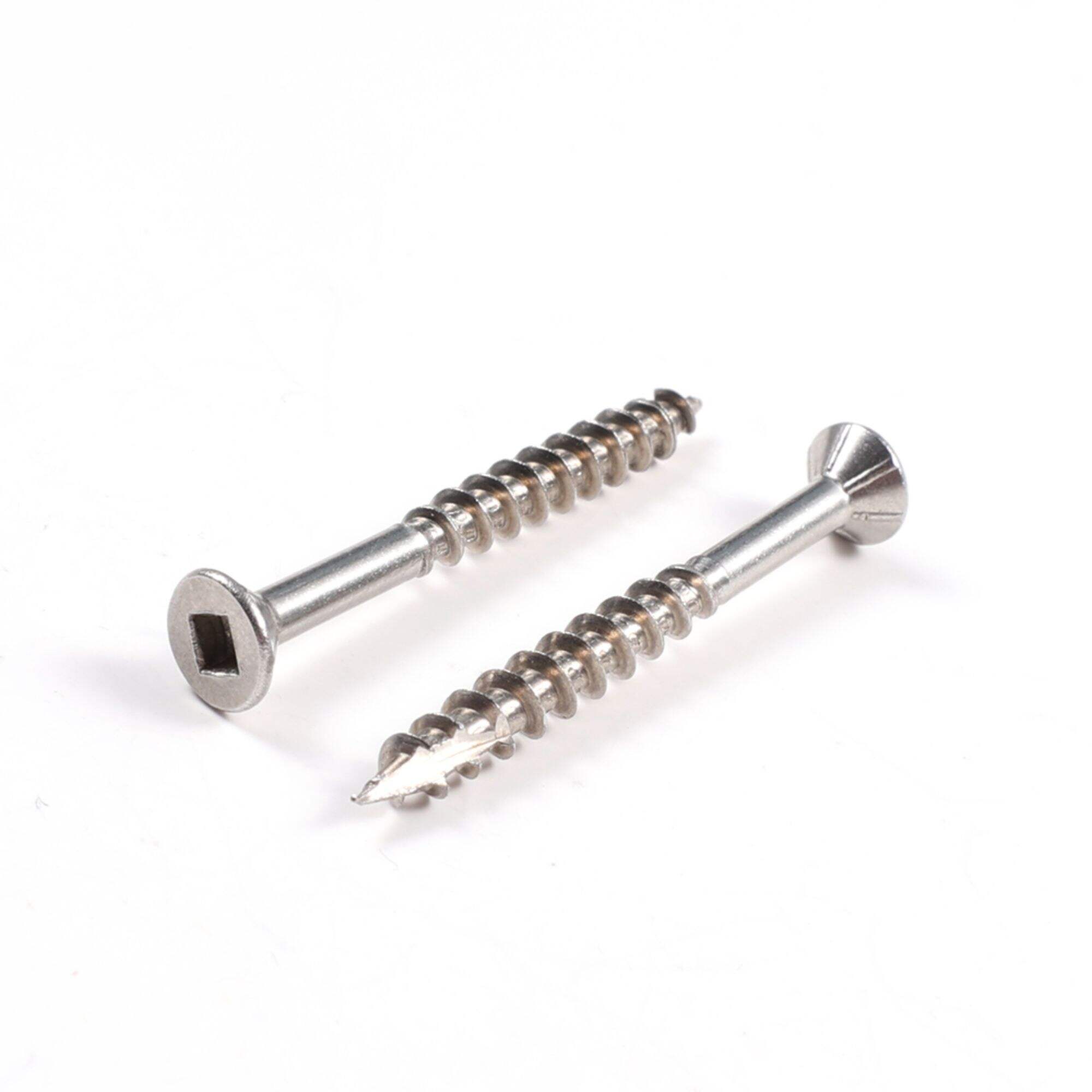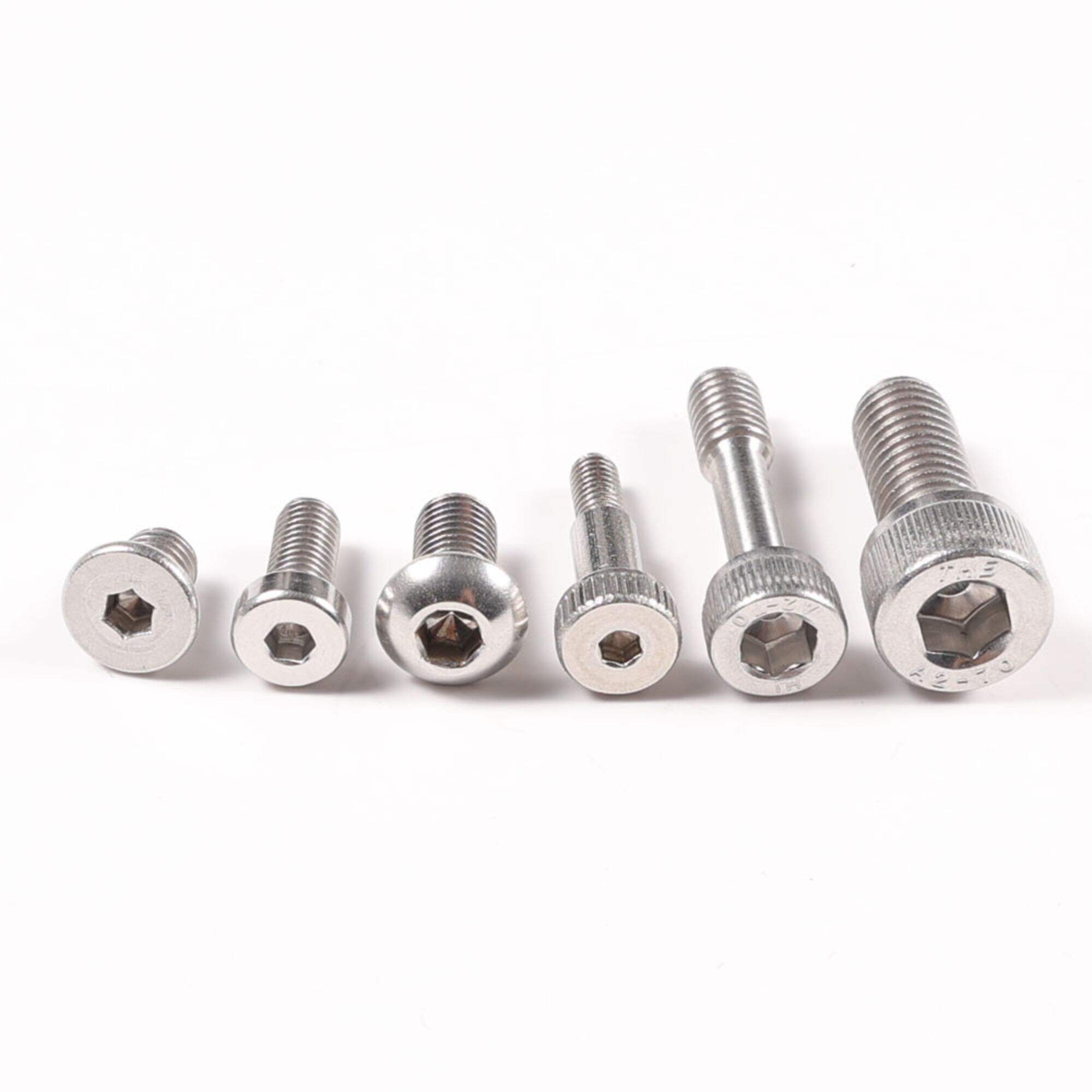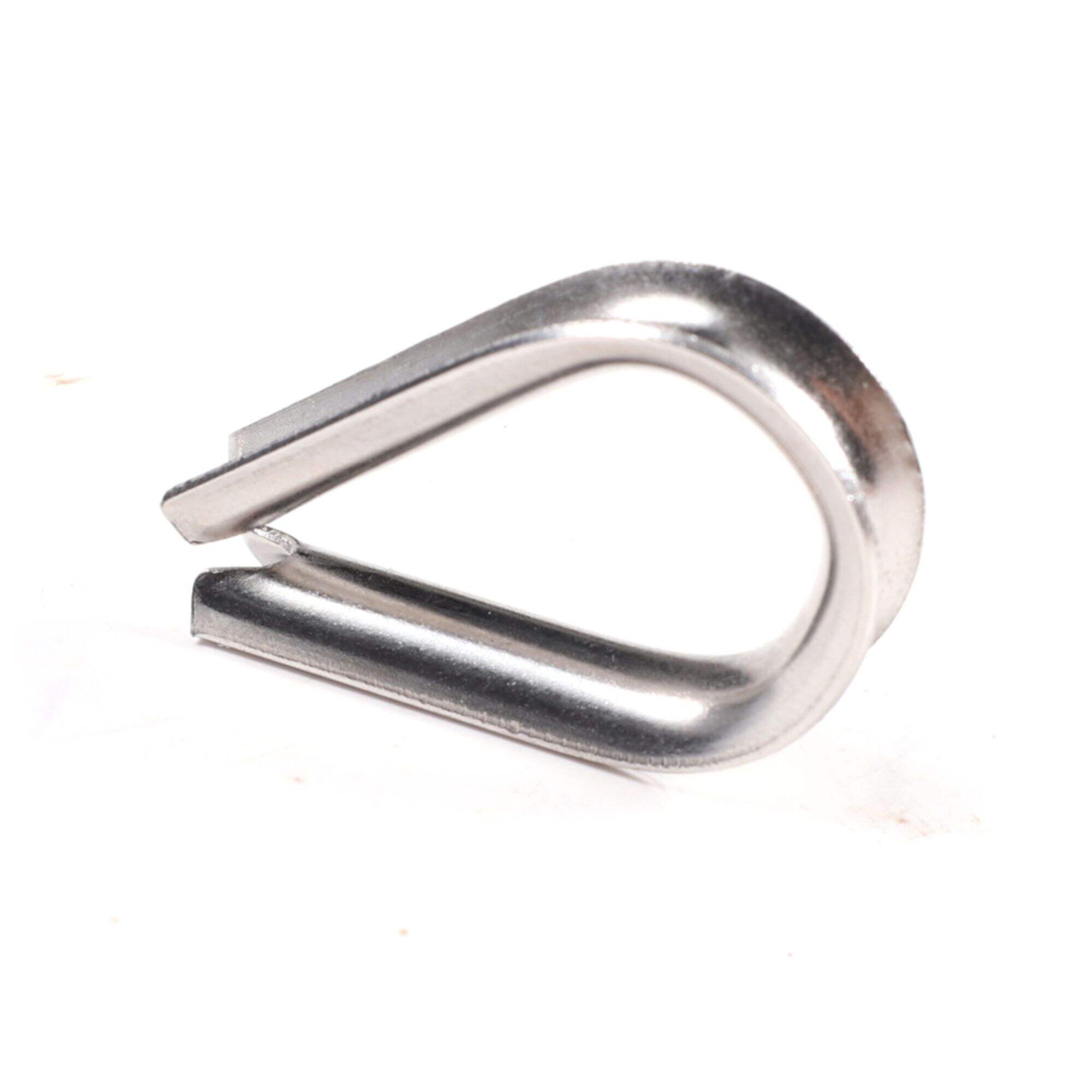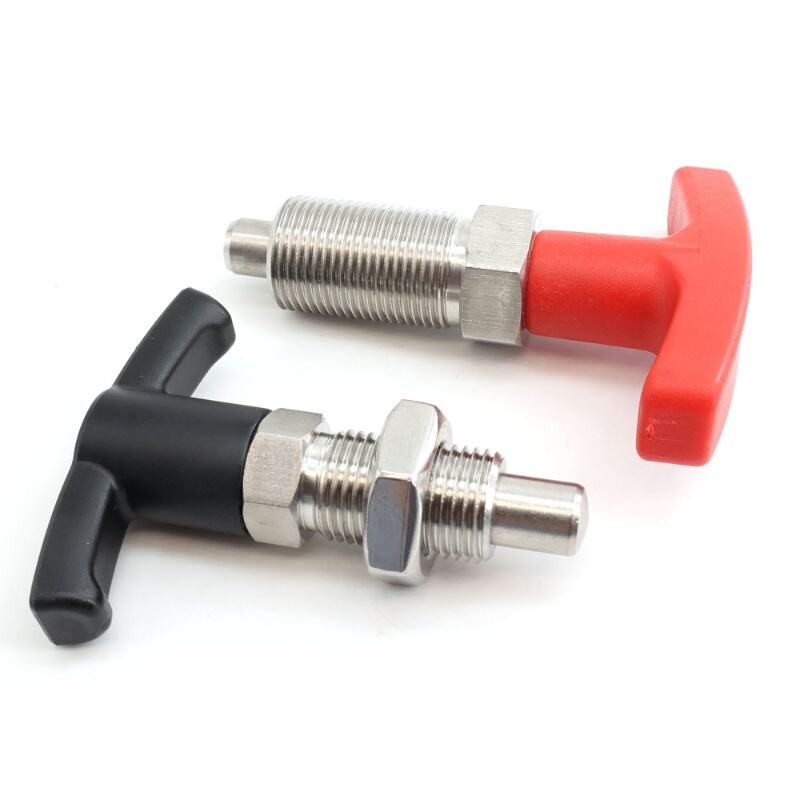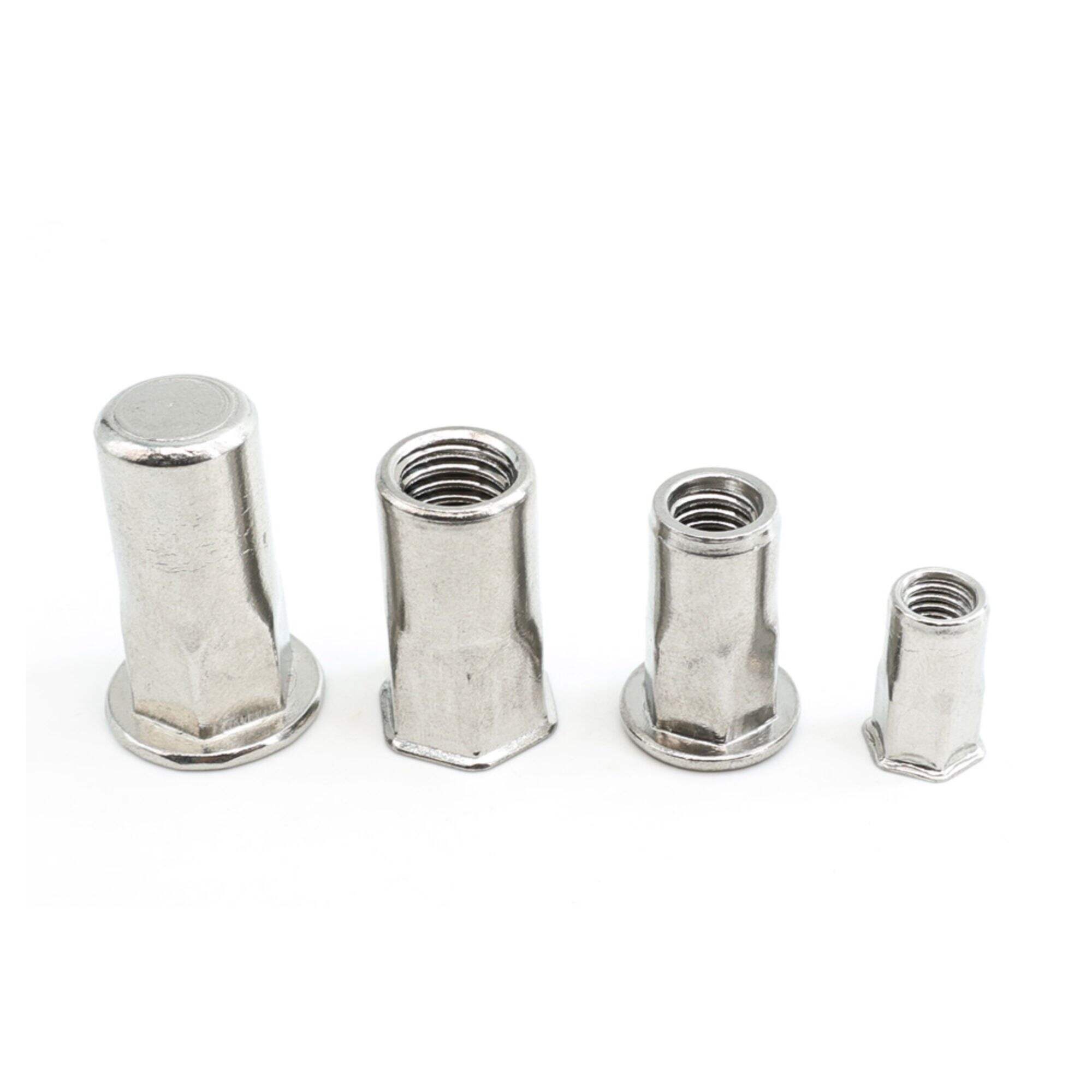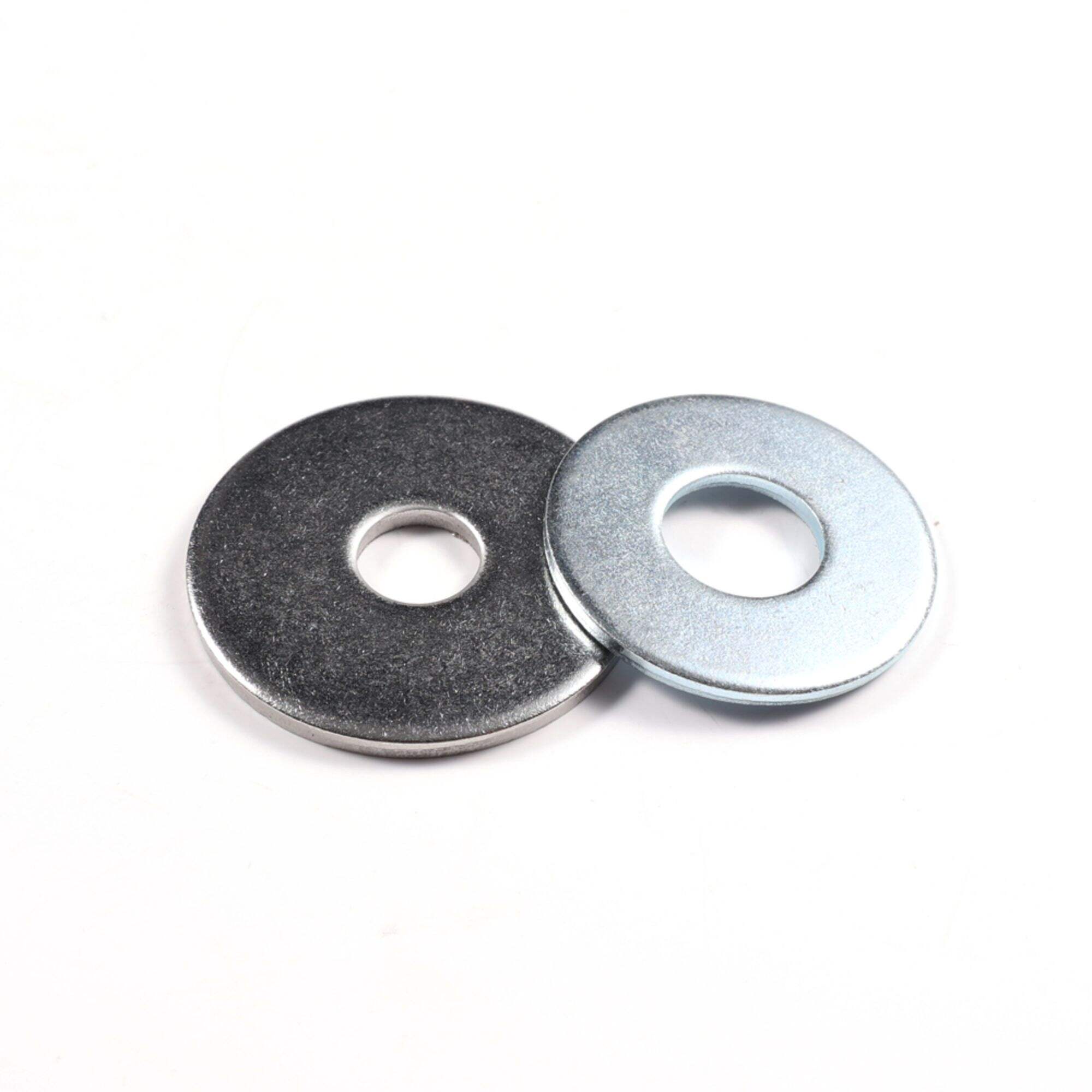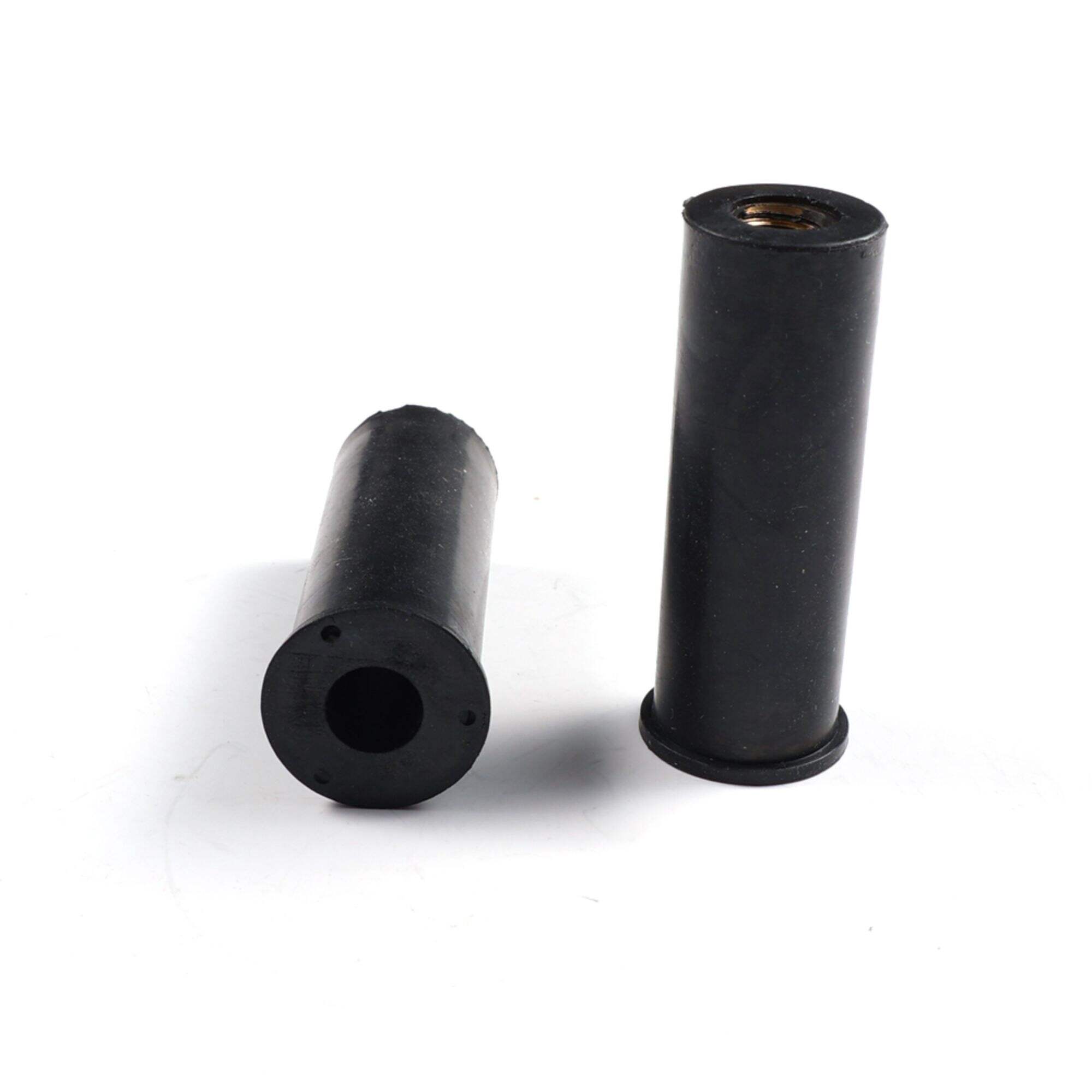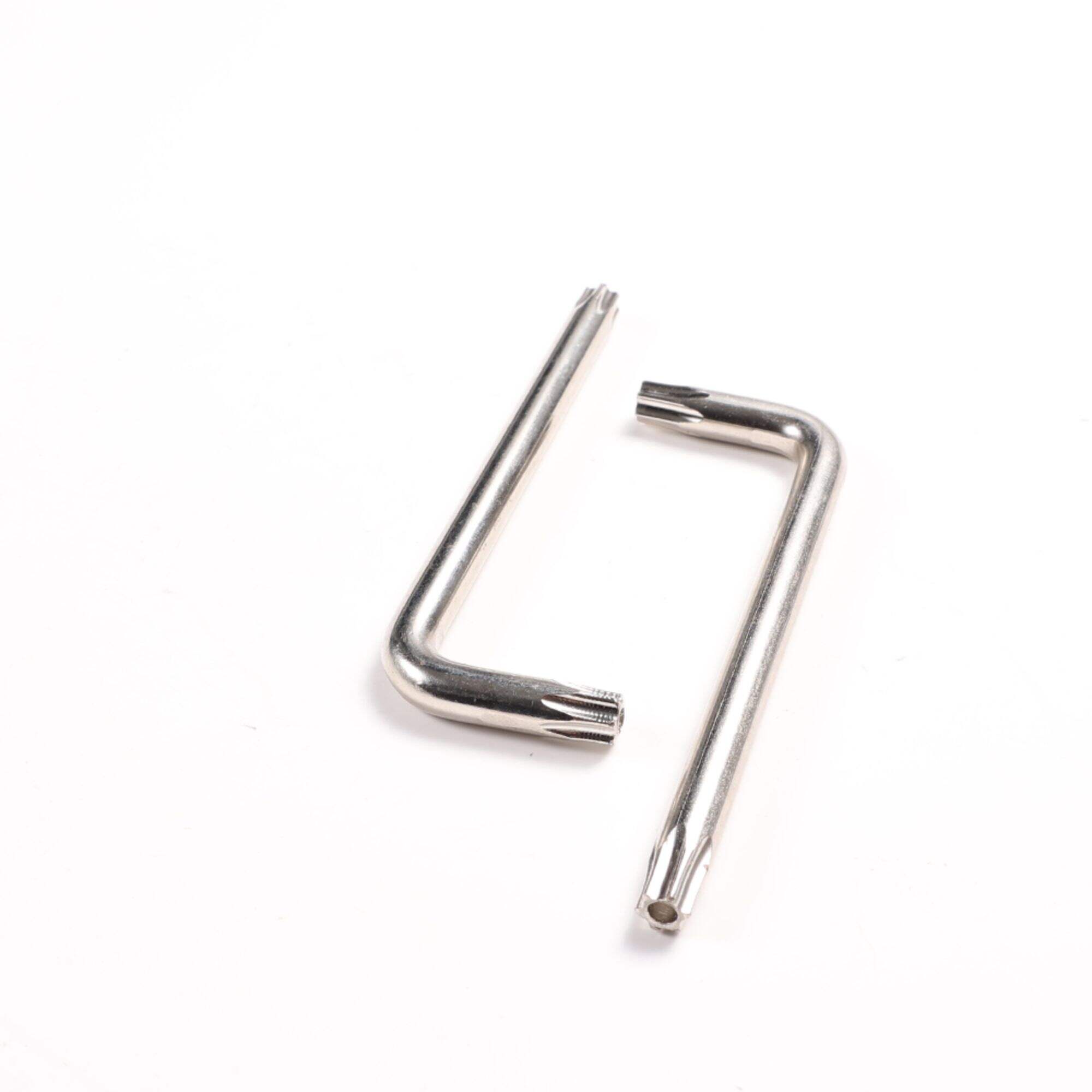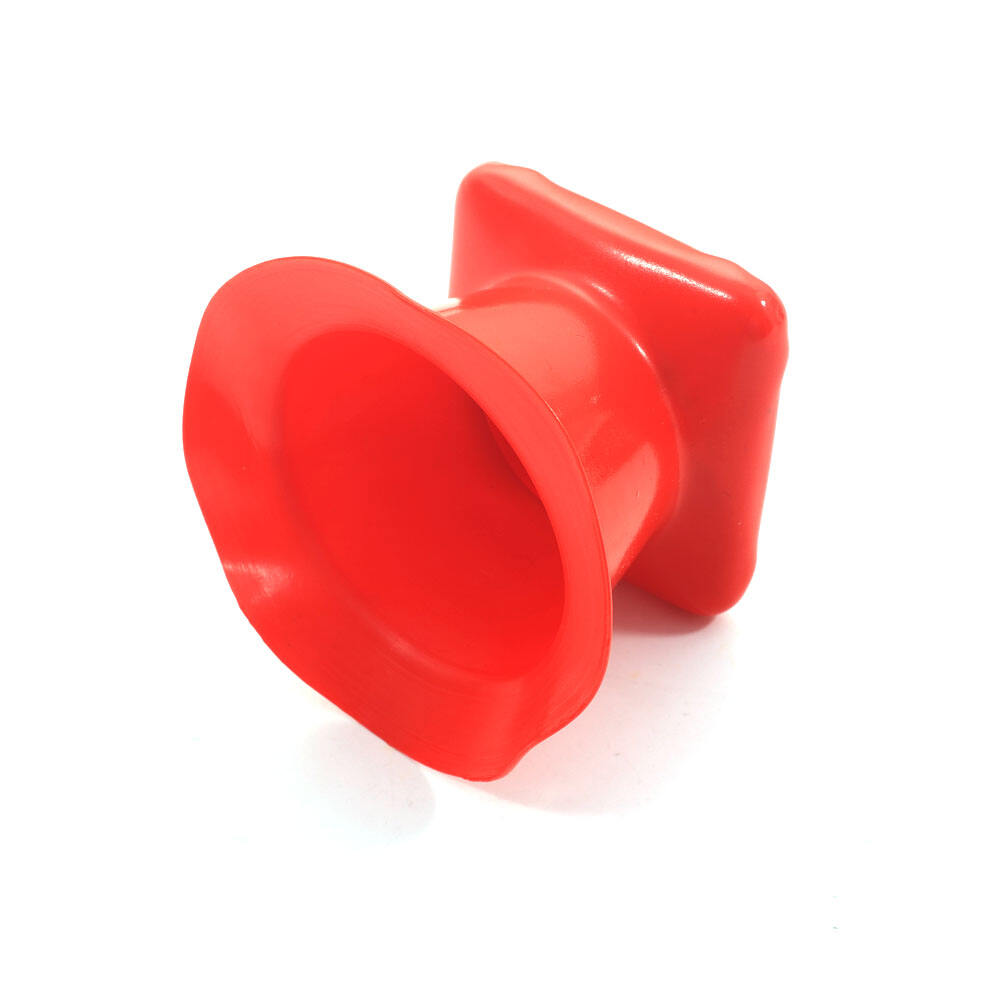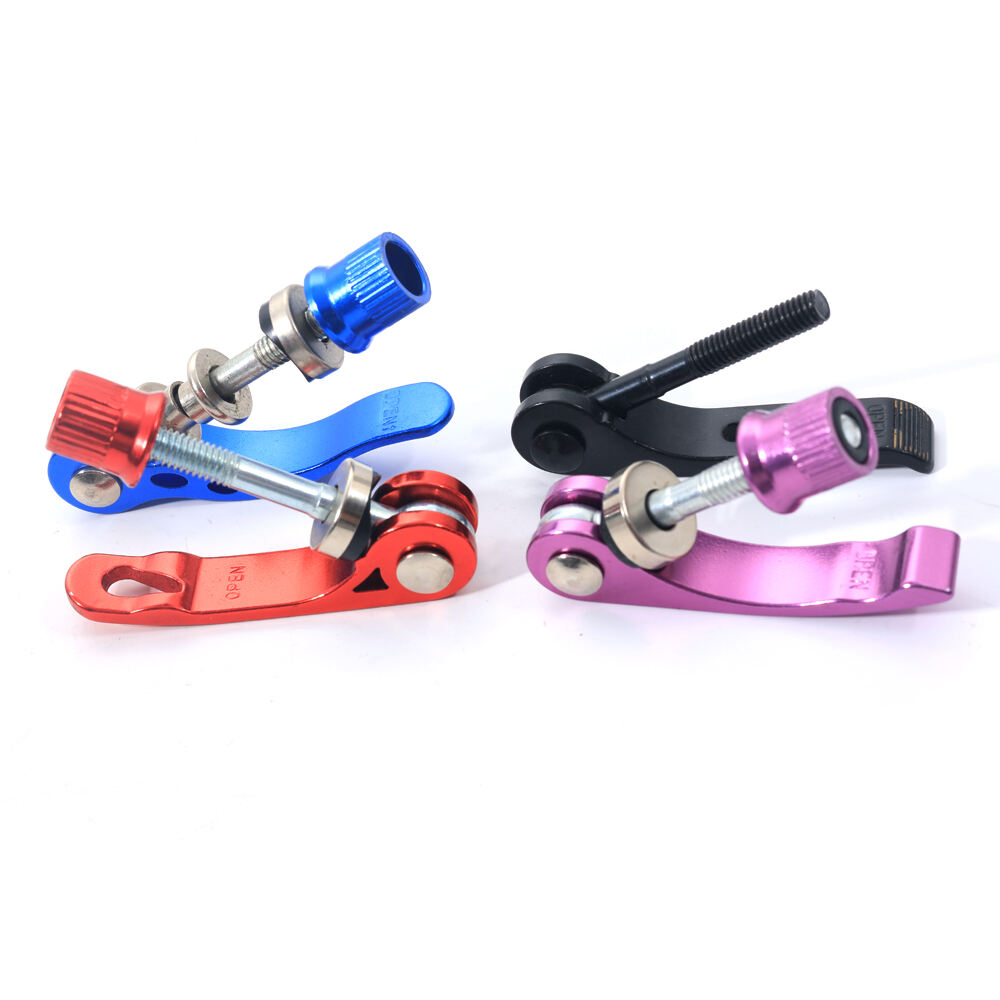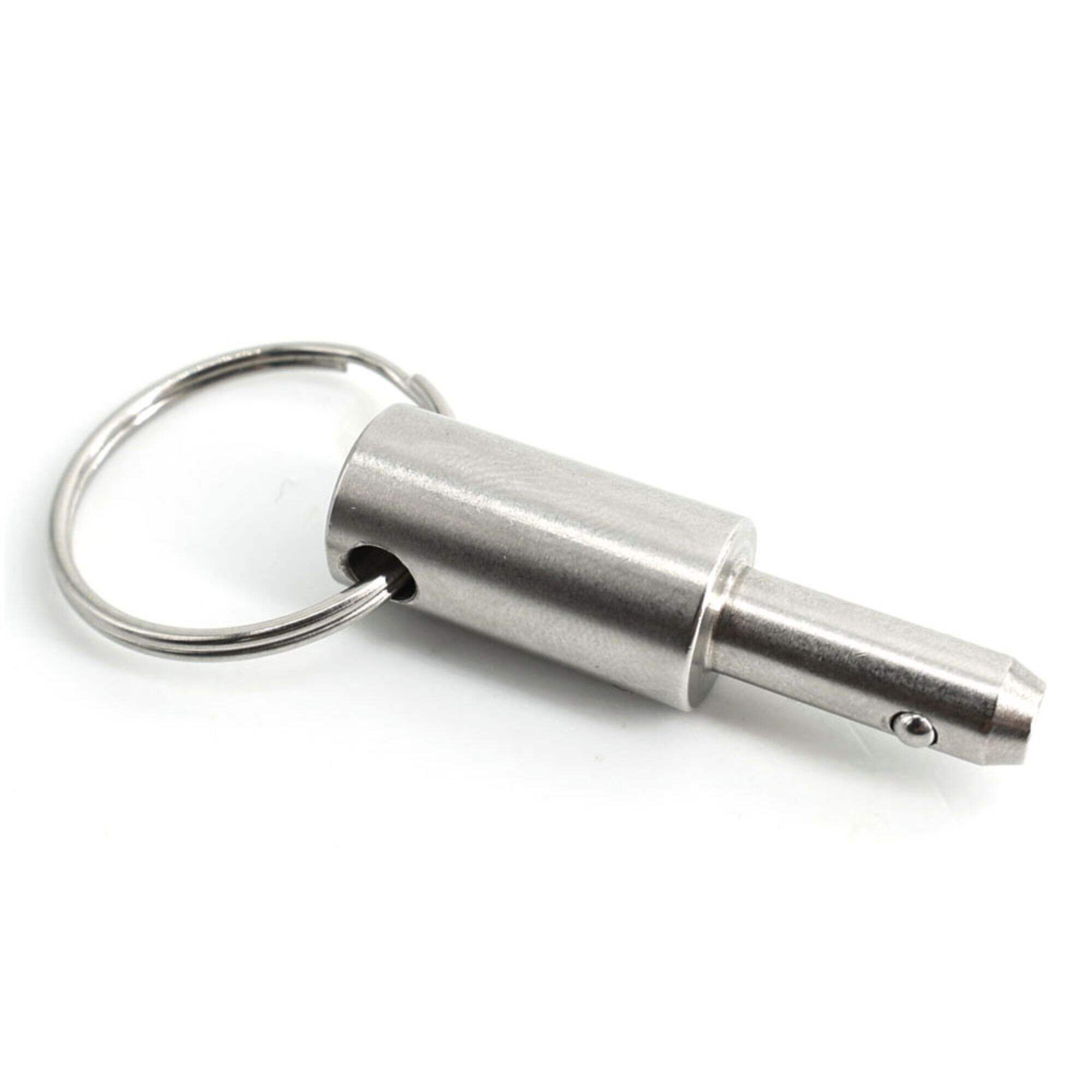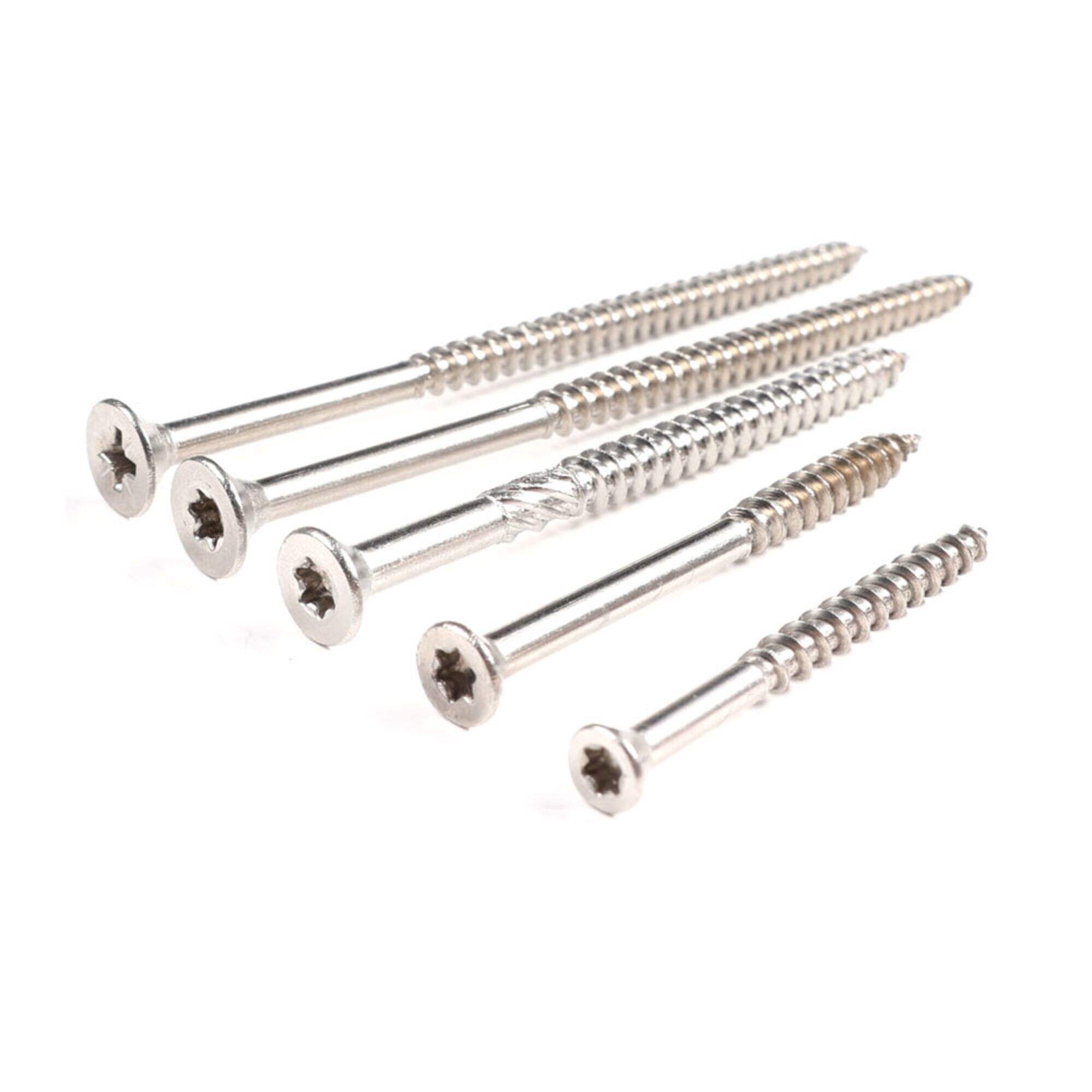
- Features
- Specification
- Description
- Quick Details
- Video
- Inquiry
- Related Products
Features
Quick Details:
Thread dimater 6#~14#;
Flat bugle head with 6 nibs
Torx drive to reduce cam-out and increase torque
Type 17 cutting to hole the base material
High corrosion resistant stainless steel 304;
Specificiation
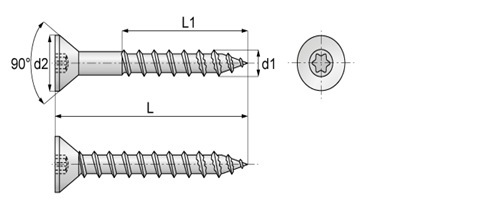
| Chipboard/decking/timber wood screw countersunkhead TORX | ||||||||
| d1 | 3 | 3.5 | 4 | 4.5 | 5 | 6 | 8 | 10 |
| d2 | 6 | 7 | 8 | 9 | 10 | 12 | 14 | 18 |
| Bit No. | T10 | T10 | T20 | T20 | T25 | T25 | T40 | T40 |
Description
Deck screw is a type of self tapping screw, it features a Type 17 point and a six lobe drive or square drive, it can be used in wood to wood, composite to wood, wood to metal frames.
Available in 304 grade stainless steel and 316 grade stainless steel and hardened steel.
For steel deck screws, head color can be painted to match the wood color.
Deck screws usually comes in flat head, trim head, flat bugle head, torx drive, square drive.
Self tapping screws, different from machine screws, no need to drill or tap a hole on the sheet, as they can tap their own hole when driving into the material, thus they need a pilot hole which a smaller then the screw diameter.
Self tapping screws include self drilling screws and thread rolling screws, this kind of screws are case hardened as they need force to tap into the material. Self tapping screws that have a sharp point is designed for wood, metal or hard plastics.
Self tapping screws for metals are usually called sheet metal screw, head type can be pan head, flat head, oval head and you can check details in head type list.
Self tapping screws for wood are usually called wood timber screw, popular head type is hex lag screw, oval flat head wood screw, oval head wood screw.
Screws for plastic are called thread forming screw, they usually feature a tapered end and they can widen the pilot hole and creat their own threads when tightening into base materials.
 EN
EN
 AR
AR
 BG
BG
 HR
HR
 CS
CS
 DA
DA
 NL
NL
 FI
FI
 FR
FR
 DE
DE
 EL
EL
 IT
IT
 JA
JA
 KO
KO
 NO
NO
 PL
PL
 PT
PT
 RO
RO
 RU
RU
 ES
ES
 SV
SV
 TL
TL
 IW
IW
 ID
ID
 LV
LV
 LT
LT
 SR
SR
 SK
SK
 SL
SL
 UK
UK
 VI
VI
 SQ
SQ
 ET
ET
 GL
GL
 HU
HU
 MT
MT
 TH
TH
 TR
TR
 GA
GA
 UZ
UZ


